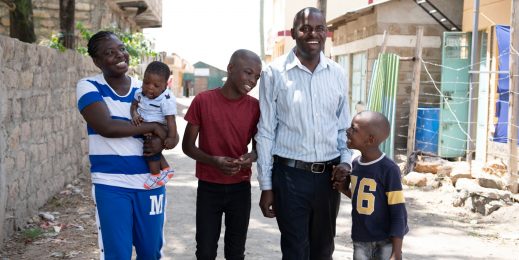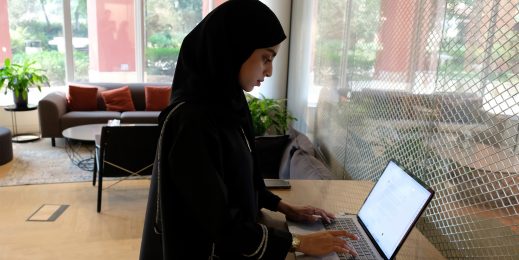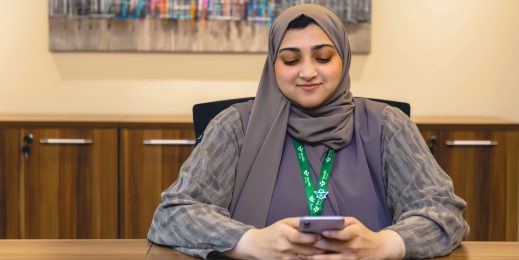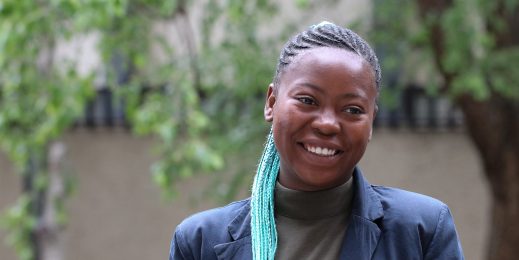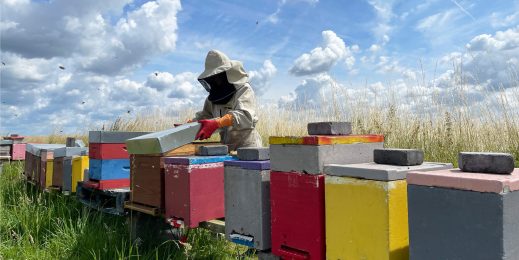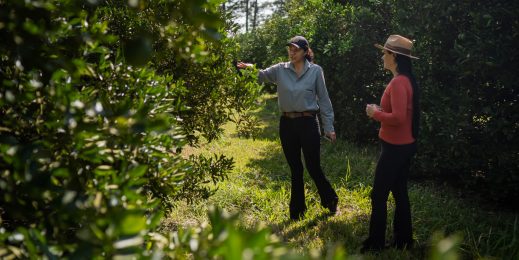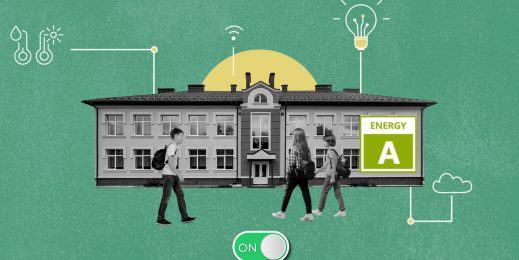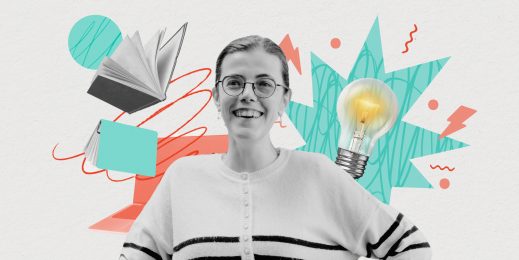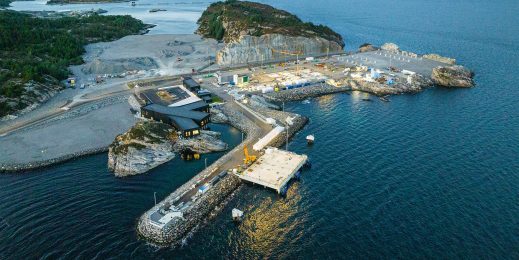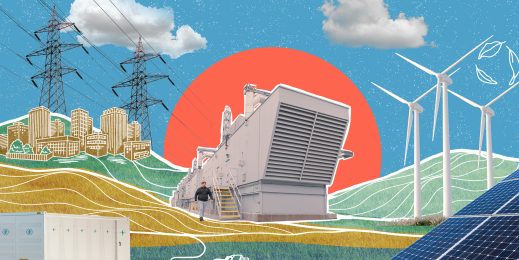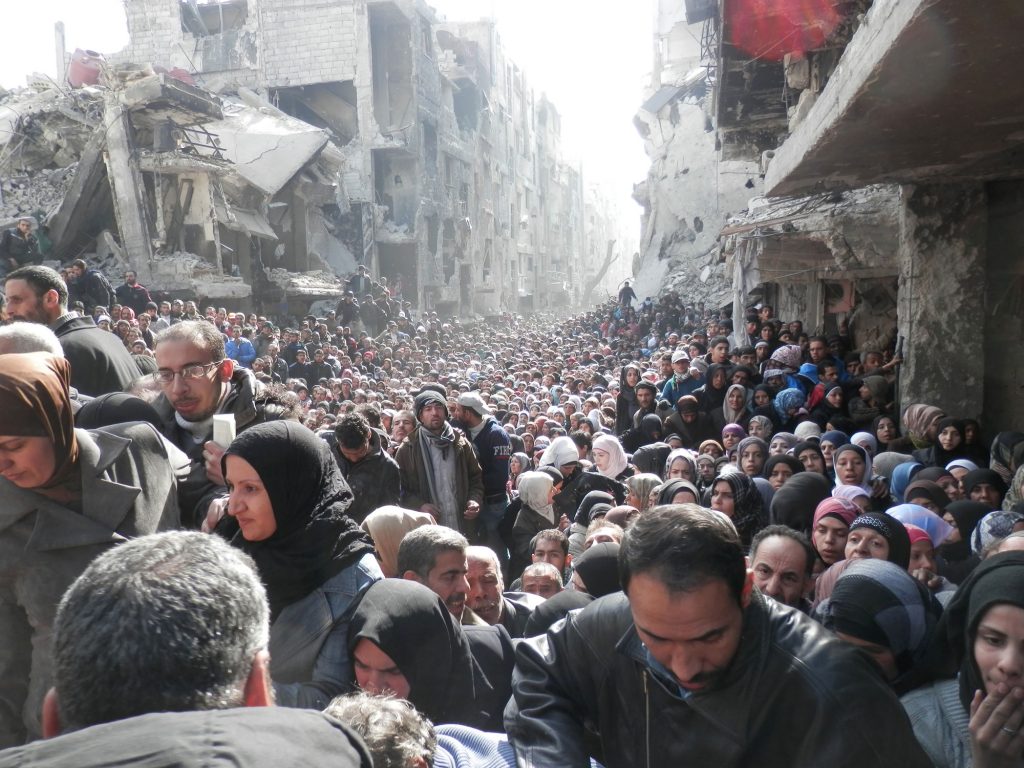
One man's incredible journey on a search for peace
From Syria to Sweden
.
“I was lucky.” This is a phrase that Hussam Jamil kept repeating to me during his gripping recount of his incredible journey as a refugee from Syria. It’s an outlook that is a testament to his resolve and nature, and a reminder of what many of us take for granted.
As someone who has lived in the UK their entire life, enjoying a world of comfort and stability, I have always thought of myself as being the lucky one. It’s funny how people’s experiences can influence their perceptions of the world around them.
Now a full-time Sales Excellence Lead in Microsoft Sweden, Hussam and his family have, at long last, found stability and hope, after years of conflict threatening to permanently damage their lives – and his outlook on his own journey, has helped me put my own world into perspective.
As World Refugee Day falls on 20 June, Hussam’s story provides a glimpse into the struggles and challenges faced by millions of people around the world who, through no fault of their own, have had their entire worlds torn apart by conflict.
This is his story.
Main image credit: © 2014 UNRWA Photo
.

.
The seeds of war
Hussam’s tale begins in Yarmouk – a district of Damascus in Syria which was home to thousands of Palestinian refugees who, like himself, had created a new life for themselves.
With a background in economics and a Master’s degree, Hussam’s past jobs have varied from working for the United Nations, as well as for mobile and pharmaceutical companies. Earning himself a good living, with a salary well-above average, life for Hussam and his family was stable. But the Syrian Civil war, whose seeds were planted during the wide wave of Arab Spring protests in 2011, crept into Yarmouk, spreading like cancer, changing the lives of its residents forever.
“There was unrest in the country”, he tells me. “There were demonstrations. There were escalations to violence. Then we had an open war. A different type of war, I might add. This war was fought in neighbourhoods between houses, and it’s very difficult to live your life in a battle zone.”
The transformation of Yarmouk from a peaceful district to a crumbling war zone did not suddenly happen overnight. Initially, Hussam describes, fighting occurred for around a year – on the border of the neighbourhood were the rebel groups, while the government troops were on the residential side, and clashes would happen regularly.
“For some reason, we always thought ‘It’s going to be better tomorrow, things will calm down, this won’t go on for long’, so people stayed put and tried to wait it out. For me, when things started to become more militarised – when we saw tanks in the street and military forces coming in, that meant that something was going to happen.”
The military presence Hussam describes was initially only on the weekends, resulting in his entire family – his wife and two sons – going somewhere else, avoiding the area while the clashes happened. Then, he recalls, the clashes occurred more frequently than just the weekends. There would be violence every day, and he would hear gunshots and the raining of ammunition starting each day.
“One day an explosion happened in the morning, and some of the debris came through my bedroom window. It’s not happening around me anymore – now it’s here.”
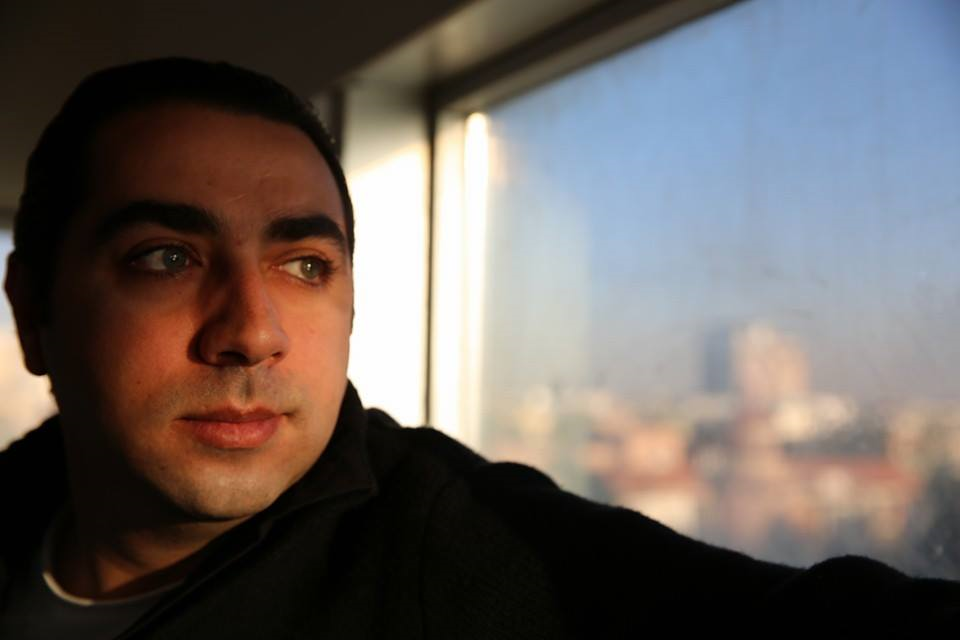
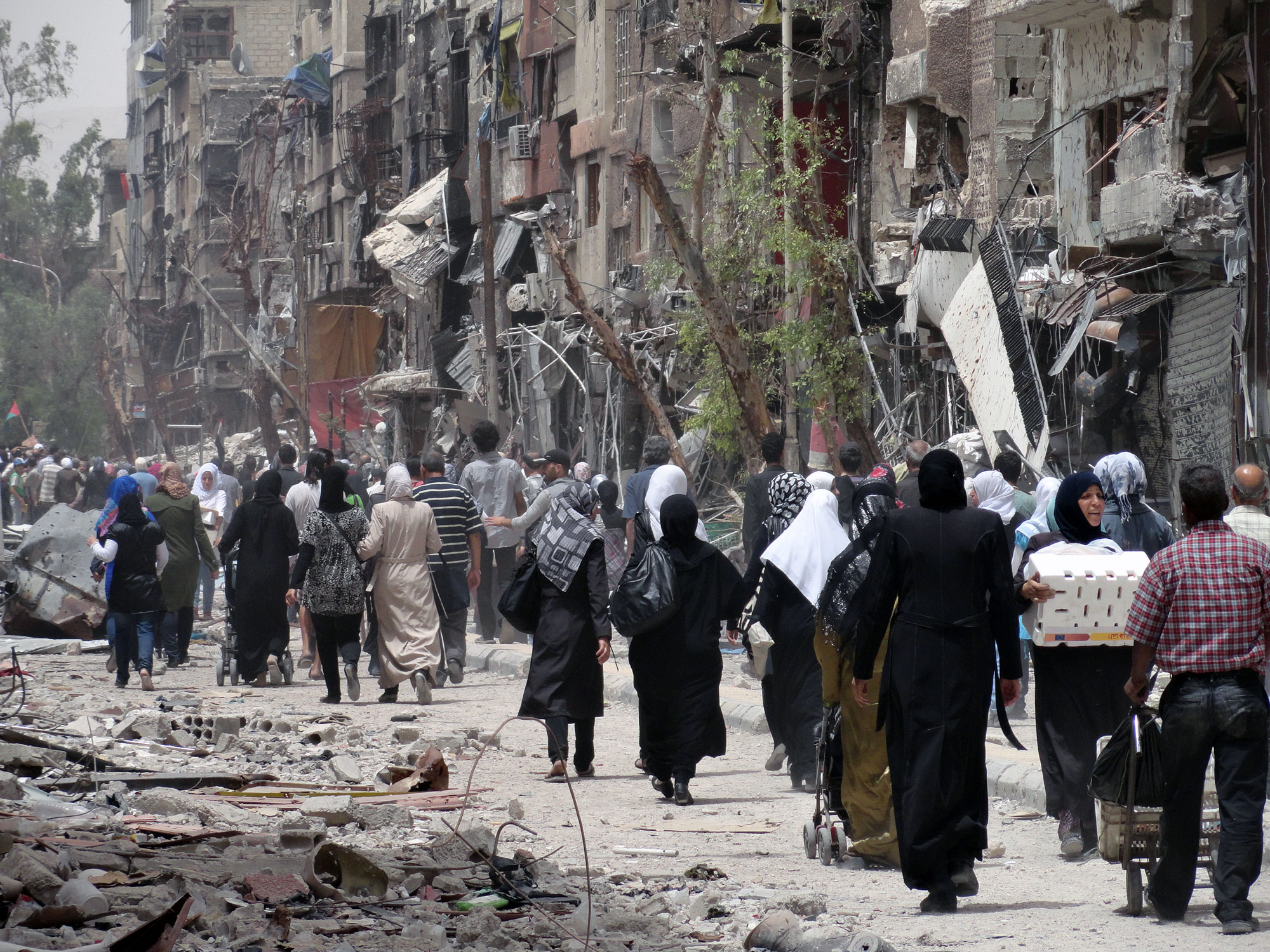
Image credit: © 2014 UNRWA Photo
Clinging to normality
Despite this unimaginable trauma, life for Hussam had to go on. In the mornings, after the initial chorus of gunfire, Hussam would join other people across the city and commute to work, in an effort to continue to support their families.
“My journey to work should have taken 10-15 minutes by car – but it took up to two hours due to the checkpoints. After work we raced back home, to get supplies and avoid being caught in clashes, because once it’s night time, it starts, it all starts. At sunset, you can see the bullets going over your head while you’re driving your car home.”
“Every day, there were bodies thrown around the motorway going home and going to work. It was horrible.”
Despite being surrounded by war, Hussam, along with many others, told himself that everything would be over, and that normality would resume.
This may make little sense to us at first, but hope gives people strength. Not only that, but the prospect of leaving your entire life behind and stepping into the unknown – especially if, as a Palestinian refugee you’ve already been through the process – is not one to be accepted so easily.
“I was telling myself that this will go away, that it will not go on forever, nobody will condone it, because it’s a filthy war. It’s not like an ‘army war’ where your country is at war, but there’s no war happening in your city. It’s different. It’s happening everywhere”.
“There is no five minutes without you hearing cannons, rockets, guns whatever. At one point you couldn’t go anywhere in Damascus without smelling gunpowder. It was really horrible. But for me, I was convinced ‘This is my country, I will stay here. There will be no other refuge’, because I did that before – well my family did – and it’s not fun to be a refugee – and the phrase ‘not fun’ is an understatement here.”
The turning point in which Hussam decided to leave Syria, came as a result of one of his son’s words:
“My eight year-old son was the reason that I changed my mind. After he saw my sisters and their friends leaving, he told me ‘Dad, I don’t want to die in Syria’ – and these are actually his words – ‘Take me somewhere where there are no guns.”
These harrowing, profound words, are made even more imposing when you realise they were uttered sincerely, from someone so incredibly young – too young, by any standards, to have been driven to say them.

.
Leaving Syria
Before Hussam and his family left Syria, he ensured that his parents and sister were safe. A lot of the older generation, including his father however, took some convincing to leave.
“They wouldn’t leave Yarmouk, although it was now taken by ISIS. They wanted to stay put, maybe because of the memory of Palestine – they don’t want to leave their home and maybe never come back – because this is what happened in 1948 and, for us, for me, I just wanted them to be safe. They were lucky, my parents, because once they moved, things began to get even worse.
During this time, Hussam had started to look for jobs abroad, ensuring safety and security for his family. Despite being accepted for two jobs in the United Arab Emirates however, his employers were unable to secure him with a residential visa, due to the extreme difficulty of Palestinian nationals being approved for visas. Soon, however, Syrians also found it extremely hard to obtain permission to move abroad.
Eventually, Hussam was able to get a visa to live and work in Erbil – the capital of Iraqi Kurdistan, 350 miles north of Baghdad, and only one hour away from Mosul – which is now an ISIS stronghold.
“I was lucky enough to find a visa for Erbil – it cost a lot. During those two years before I left – the two years of the crisis – the value of money started declining. And because we were moving a lot and we had certain responsibilities, you had to use up your savings basically. Two years can have a big impact on your savings.”
“I loaned some money, and I took my wife and kids and we left for Erbil. We were very lucky because my sister was there, my parents were there, we had a place to stay. Within a month, both me and my wife found very good jobs.”
While in Erbil, Hussam and his wife were working to not only keep a roof over their heads, but for their children’s education. Public schools in Erbil were Kurdish-language based, and English schools cost money.
Sadly though, this period of stability did not last long. ISIS carried out two terrorist attacks in Erbil – two big explosions in the city – and they had also taken the nearby town of Mosul. Their actions caused the economy to decline, putting Hussam out of a job, leaving his wife as the sole financial support for the family.

.
The long road to Sweden
With unrest following them to Erbil, Hussam looked to a more permanent solution for safety and stability – Europe.
This decision too, however, was fraught with peril. The all too familiar scenes of small, dangerous, overcrowded boats that are packed with refugees traversing the seas weighed heavily on Hussam’s mind.
“I asked my friends who had already made it to Europe what to do. They told me definitely not to go from Egypt or Libya, across the Mediterranean. People drown, ships sink all the time. They told me not to take my kids, that it was insane.”
“It defeats the entire purpose”, he agreed. “If you’re going to put yourself in harm’s way, you might die – and then you’ve lost your children anyway. It didn’t make sense to put myself at risk, because then I couldn’t rescue my kids.”
Instead, Hussam paid a large sum of money, eating into what little savings he had left, to a smuggler, who promised to fly him to safety, but failed to deliver. Instead, Hussam was left at an airport, and sent back by the authorities, having lost a large chunk of money in the process.
Undeterred by this setback, he managed to enter Turkey with a visa which, he tells me, was incredibly lucky to obtain, given how hard it was for Palestinian refugees to obtain permission.
In Turkey, Hussam managed to track down a ship with the help of his cousin, which promised safe passage to Europe. After a 24 -hour journey by bus however, it was full to capacity. Another barrier to the promise of safety.
Using his limited funds, Hussam finally managed to find a ship which provided him with passage to Greece, before finding a flight to Sweden.
“I was very lucky, because for some people, their journey can take months. I know a guy who got stuck in Greece for 11 months – he couldn’t leave. Some people get stuck in Turkey as well.”
“There are all types of dangers when you are taking that amount of money – the only amount of money you will ever have. Every Syrian in the world needs their money either to help themselves or their family, and if your direct family is depending on you, and you don’t have money – that’s it. Whatever I had should have been enough to get there – or nothing. You will be in hardship – it was a big risk.”

.
The beginning of the end
Based on the history of other Syrian refugees, Hussam, once finding asylum in Sweden, thought his family would be with him within six months, but their reunion ended up taking two years.
In that time, from the very first day he arrived in Sweden, he applied for jobs he was qualified for, but sadly found no success. Despite his extensive experience, he was rejected at every turn:
“Until I got that first call from the recruiter at Microsoft, for two years, I hadn’t got an interview, despite the fact that I have extensive experience, I speak English very well, I have a master’s degree, and I applied only for jobs that I was qualified for.”
With a friend in a similar situation – a qualified person with academic experience – resorting to becoming a bus driver, Hussam felt despair:
“I was in a kind of shock. I felt that all I did in my entire life – 40 years of work, education, experience, sacrifice, long work hours, long study hours – all in vain. So I started accepting the fact that I should look for any minimum wage job. My wife was struggling and I couldn’t wait for the right job, I needed a job, so I found a job at Burger King.”
“My only thought was this is – with all respect to everyone who works in a restaurant – not an intellectual job, but the only thing I wanted to do was not get fired from this simple job.”
During this time, Hussam pushed himself further, taking intensive Swedish language lessons in an attempt to do all he could to find himself a more suitable, financially stable job. The breakthrough came when a friend told him about a LinkedIn initiative called Welcome Talent – a platform where employers in Sweden can reach out to potential employees to the refugee newcomers in the country.
From there, Hussam applied for, and successfully obtained, an internship at Microsoft’s Swedish headquarters: “By the time of acceptance, of course, my self-esteem was very low, I wasn’t sure of anything, and I wasn’t sure of the internship itself. I asked myself – is it like a Hollywood-type intern in a movie where you just get coffee and people make fun of you?”
“I must say though, from the first call I got from the HR manager in Sweden at the time – you could hear in her voice how professional she was – not just her, but every person that I met from the first day to today – this is the best group of people I have ever met. Everyone is professional, and very nice.
In Sweden, people in general are very polite, and at Microsoft, you find that amplified. People treated me right away as an equal. I was invited to all the employee meetings, and they gave me challenging work. I didn’t get coffee for anyone, of course.”
Following his internship, Hussam stayed on at Microsoft with the job he now holds in sales. In his own words: “I feel like a real human being again, and I have hope in tomorrow. I can plan ahead – I couldn’t before – and I couldn’t for a long, long time.”

.
The future
When I mentioned to Hussam how moving his story was – how it brought the reality of the Syrian conflict to light to a sheltered person such as myself, he responded by saying that “The real stories happen after the news – all the news channels report on the explosions here and there, but the real news is the impact of that explosion on people’s lives, their economy, their social life, their perception of the world, perception of security, the perception of safety.”
“They’re just saying this explosion happened – but not what really happened to the people, because everything – the politics, the history – everything, revolves around the people. I don’t know why, in such a sophisticated world that we live in, that the real story is not covered.”
Not for the first time, as my interview with Hussam was coming to a close, he mentioned how fortunate he was – a sentiment that almost sounds ludicrous given everything him and his family have gone through, but such is his humbling outlook on life:
“We were very lucky – I must say again – nobody was injured, we were not stuck in a siege, we were never hungry, we always had jobs. This is not the worst story. For me, I think this is the best story, coming from Syria. If you think what I told you is powerful, you should listen to other people.”
As World Refugee day shines the spotlight on Hussam and countless other stories, we would do well to heed his advice, and listen to the stories which show off the bravery of millions of people, who have so much to offer society.





